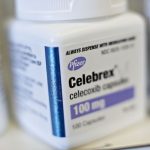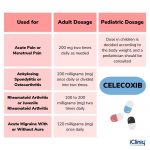Contents
Crohn’s Disease vs. Ulcerative Colitis
Both Crohn’s disease and ulcerative colitis, or UC, are types of IBD (inflammatory bowel disease), but they are not the same disease.
- Crohn’s disease, sometimes referred to as Crohn disease, is a chronic inflammatory process with no known cause that can affect any part of the GI tract from the mouth to the anus.
- Ulcerative colitis (UC) is also a chronic and intense inflammatory process with no known cause, but it is only confined to the large bowel.
People with Crohn’s disease have episodes of abdominal pain and diarrhea, followed by remission of symptoms. There is no cure for Crohn’s disease.
Ulcerative colitis symptoms predominantly include:
- Left-sided lower abdominal pain with rectal bleeding
- Frequent stools
- A mucousy rectal discharge
There is no cure for ulcerative colitis, but surgical removal of the entire large intestine can cure it. However, there can be complications after surgery.
Although both Crohn’s disease and ulcerative colitis are chronic diseases, UC may be considered worse, as people with extensive and severe ulcerative colitis may require surgery. People over age 50 that need surgery have increased mortality.
Causes and Triggers
Doctors and researchers do not know what causes both diseases, but they speculate that factors such as genetics, immunity, gut microbes, diet, environment, and certain drugs may be triggers.
You may be able to identify triggers that affect your disease by carefully noting symptoms in a diary.
Signs and Symptoms
Differences
There are a few differences in symptoms. For people with ulcerative colitis, abdominal pain is often confined to the left side, while Crohn’s disease may have abdominal pain anywhere.
Similarities
Both diseases have many similar symptoms, such as abdominal pain, diarrhea, bloating, cramps, urgency to defecate, anorexia, nausea/vomiting, constipation, and weight loss.
QUESTION
Diagnostic Procedures
Doctors diagnose ulcerative colitis by endoscopy. Other tests like scans are used.
Doctors use the same procedures to diagnose Crohn’s disease, but they also use small bowel studies and upper GI endoscopies to identify the abnormal gut mucosa.
Treatments
Treatments may include corticosteroids, anti-inflammatory agents, tumor necrosis factor inhibitors, immunosuppressants, antibiotics, and more. Severe ulcerative colitis may require surgical removal of the large intestine.
Talk to your healthcare professional about what treatment protocol you should follow.
Diet and Supplements
Crohn’s Disease
No specific diet is recommended for everyone with Crohn’s disease. Nutritional deficiencies are a problem, especially in children and teens. Nutrition is important to manage symptoms.
Ulcerative Colitis
Nutrition is important, and nutritional supplements may be necessary if symptoms do not allow a balanced diet.
Supplements
Crohn’s Disease
Supplement needs depend on diet and affected parts of the digestive tract. The most common deficiencies include vitamins D and B-12, iron, calcium, potassium, and magnesium.
Talk to your healthcare professional about supplements.
Ulcerative Colitis
Supplement needs are similar to Crohn’s disease.
Alcohol and Crohn’s Disease
Drinking alcohol is not recommended because it may worsen symptoms, contribute to malabsorption, interact with medications, disrupt sleep, and cause dehydration.
Complications and Prognosis
Prognosis is fair to good for individuals who respond to medical therapy and avoid triggers. Severe ulcerative colitis may reduce lifespan due to complications.
By clicking Submit, I agree to the MedicineNet’s Terms & Conditions & Privacy Policy and understand that I may opt out of MedicineNet’s subscriptions at any time.


